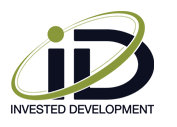Every year, billions of dollars are spent on aid and grants. Each country in the global south has its share of NGOs. All this is meant to do well, and impact the lives of the people or environments in which this money is spent. Does this really happen? There are many sides to this, and a good amount of books written to support either side. Social enterprises provide market solutions to poverty. Investors have taken note of this and the amount of private capital flowing into social enterprises is increasing. To what extent has social enterprise sought to address environmental issues and what are the success rates? What are some of the lessons learned? What are some of the technological advancements that entrepreneurs around the world are coming up with to address this?
 For my internship, I am working with Invested Development (not to be confused with Arrested Development). It is an impact investing firm based in Boston, with a field office in Nairobi. Impact investing is whereby an investor will only invest in a business that seeks not only financial returns but also the social and environmental impacts of the business. These businesses seek to address the needs of consumers in the bottom of the pyramid. I first got interested in this field after reading CK Prahalad’s famous book; The Fortune at the Bottom of the Pyramid: Eradicating Poverty through Profits. In this book, Prahalad presents a case for MNCs to start looking at the bottom of the pyramid as a business opportunity where the markets are big and the people have very high quality entrepreneurial skills. Prahalad shows that it is possible to fight poverty while increasing profitability. Invested Development focuses on seed stage enterprises that are offering innovative solutions to poverty, specifically in mobile technology and alternative energy. The fund is focused mainly in Latin America, India and Sub-Saharan Africa.
For my internship, I am working with Invested Development (not to be confused with Arrested Development). It is an impact investing firm based in Boston, with a field office in Nairobi. Impact investing is whereby an investor will only invest in a business that seeks not only financial returns but also the social and environmental impacts of the business. These businesses seek to address the needs of consumers in the bottom of the pyramid. I first got interested in this field after reading CK Prahalad’s famous book; The Fortune at the Bottom of the Pyramid: Eradicating Poverty through Profits. In this book, Prahalad presents a case for MNCs to start looking at the bottom of the pyramid as a business opportunity where the markets are big and the people have very high quality entrepreneurial skills. Prahalad shows that it is possible to fight poverty while increasing profitability. Invested Development focuses on seed stage enterprises that are offering innovative solutions to poverty, specifically in mobile technology and alternative energy. The fund is focused mainly in Latin America, India and Sub-Saharan Africa.

As a Frontier Market Scout Fellow, which is a partnership with Monterey Institute of International Studies and Village Capital, my roles are mainly to source for companies and assist with due diligence. To tie with my Bard CEP studies and interests, I focus on the energy part of the portfolio development. Sourcing for energy companies has been a great learning experience. My first assignment was to look at battery technologies and research on developments within the field. This could not have been a more perfect match as it was almost a continuation of my Statistics/Science project where I looked at uses of lithium in car batteries for electric cars, and whether we should be worried about reaching “peak lithium”. It turns out there is lots of lithium, and we should not be too worried, so you can go ahead and get an electric car, if you were worried about the world running out of lithium. It is interesting to look at environmental issues from a for-profit perspective, since there are many who think that addressing environmental issues will hurt the profitability of the business, even though that is not really the case.
This internship allows me to interact with entrepreneurs who have come up with solutions which will pull many people out of poverty while ensuring that the environment is respected. I am able to tie what I have learnt at Bard CEP about policy analysis with private sector involvement. For instance, within the energy portfolio, government policies on solar subsidies, renewable energy standards, and feed-in-tariffs play an important role in increasing private sector participation. Access to national grid is unlikely to be at 100% in most countries, Kenya for instance is only at 16.1% (2009). Having feed-in-tariffs will attract private sector involvement and enable the country to increase energy access. Solar subsidies will also reduce the overall price of solar panels, allowing more people to have access to a cleaner energy source. Have a look at some of the projects I have worked on so far.
Throughout this research, I am learning to look at how policies can be used to improve business opportunities; especially how a relatively new approach in venture capital can play an important role in accelerating business solutions to poverty. I am happy to see applications of exercises done in class in real life, and to be able to make the connections that are at times hard to do in theoretical situations. It is time to highlight enterprises and success cases from emerging markets. After all, aren’t we all tired of reading sad stories about a starving kid or a family without electricity? So join me for weekly updates on social enterprises that are addressing agriculture, conservation, energy, water access/quality among others. I will also try my best to post something that is in line with the module system so that first year students can get an emerging markets perspective on it.
